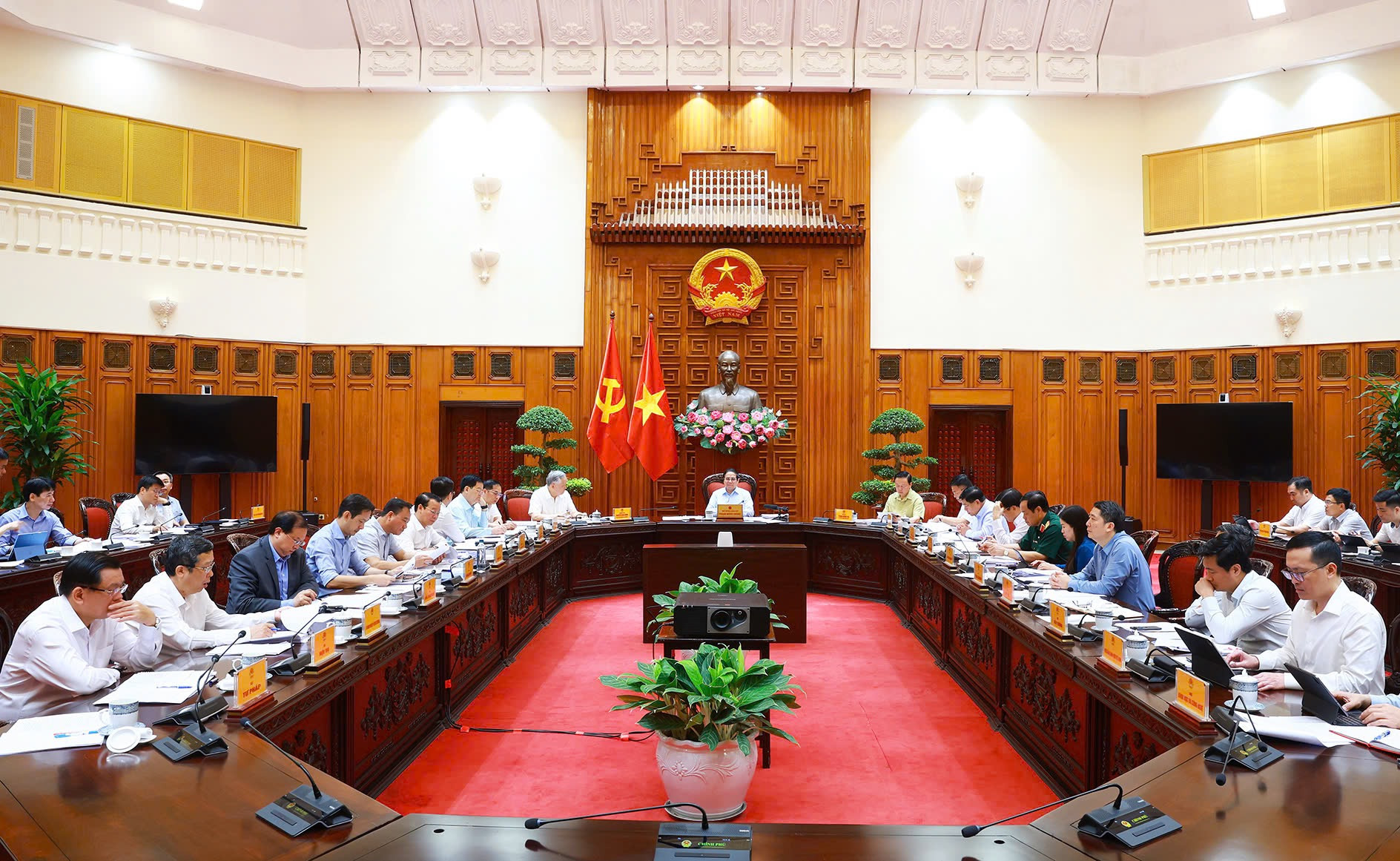At a government meeting on April 22, Prime Minister Pham Minh Chinh emphasized that Vietnam’s calm, flexible, and timely responses in handling tariff negotiations have been positively evaluated by the United States.
This was the fifth time the Prime Minister has convened a dedicated meeting with ministries and relevant agencies to review the implementation of key directives from the Politburo and General Secretary To Lam on adapting to new U.S. tariff policies and advancing a balanced, stable, and sustainable trade relationship.

According to the Prime Minister, when the U.S. introduced new reciprocal tariff measures - including a 46% tariff on some Vietnamese goods - Vietnam promptly adopted corresponding tax adjustments, addressed concerns in key U.S.-interested projects under legal frameworks, and increased imports of U.S. goods in sectors where the U.S. holds comparative advantage, such as aviation.
“Vietnamese goods do not compete directly with American goods,” the Prime Minister stated. “In fact, our trade relationship has long benefited both sides, particularly U.S. consumers and Vietnam’s export economy.”
Vietnam is therefore ready to negotiate based on the proposals put forward by the U.S. side, he affirmed.
Promoting dialogue, respecting differences
Prime Minister Chinh stressed the importance of further negotiations to ensure a trade relationship with the U.S. that is balanced, stable, effective, and mutually beneficial. He called for maintaining a calm and constructive approach, enhancing dialogue, and avoiding unnecessary tension. The guiding principle is to respect each other’s positions while harmonizing national interests and safeguarding business communities on both sides.
The Prime Minister directed negotiation teams to prepare thoroughly, in line with the guidance of the Politburo, the General Secretary, the Government, and the Prime Minister himself, ensuring that any trade solutions:
Do not complicate other international agreements Vietnam is party to;
Do not damage Vietnam’s broader market relationships;
Offer win-win outcomes.
He also urged accelerated institutional reforms to both drive growth and strengthen governance, particularly in areas like product origin verification, anti-smuggling, anti-counterfeiting, and trade fraud prevention.
Other key mandates include:
Revising VAT refund mechanisms
Reducing administrative procedures and compliance costs, as per Government Resolution 66
Establishing a National One-Stop Investment Portal and regional investment promotion centers
High-level diplomatic engagement
In the context of the Vietnam–U.S. Comprehensive Strategic Partnership, General Secretary To Lam held a phone call with former U.S. President Donald Trump, while Deputy Prime Minister Ho Duc Phoc and Minister of Industry and Trade were appointed Special Envoys to lead discussions with the U.S.
Leaders of the Party and State have also held discussions with the U.S. Ambassador to Vietnam, influential policymakers, scholars, and American businesses to share perspectives and assess the evolving landscape.
The Vinh